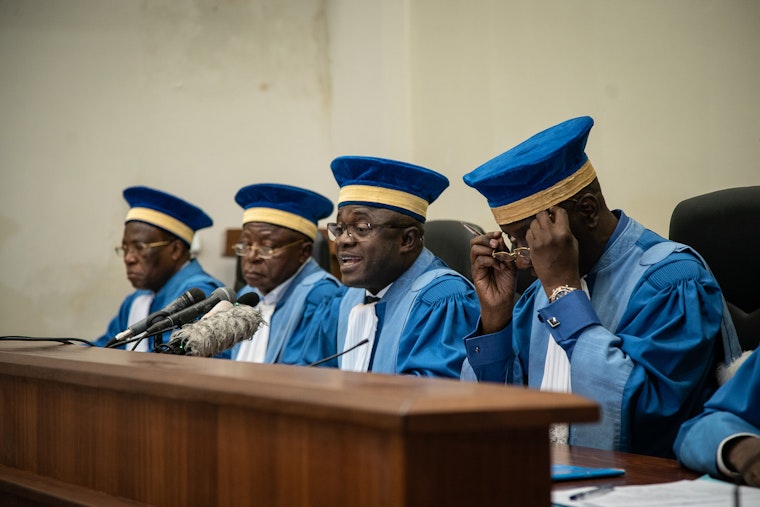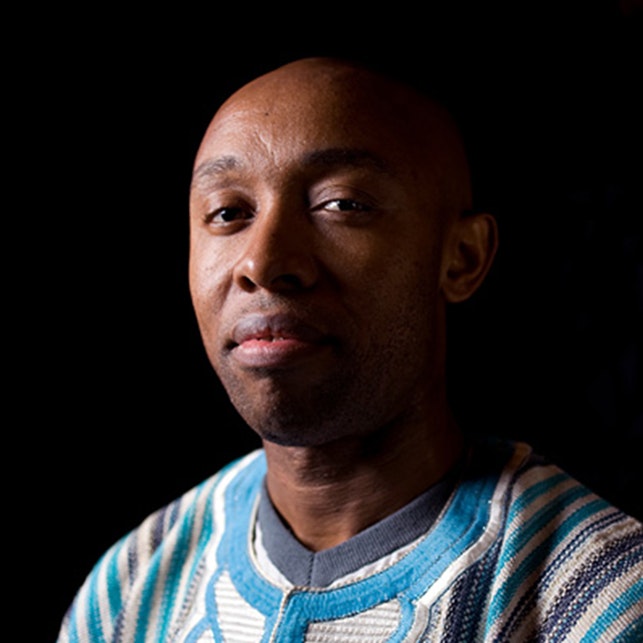Around Africa, Judicial Independence Confronts Viral Authoritarianism
By Chidi Odinkalu

It has been a difficult year for Africa’s judges. Some who have resisted efforts to undermine their independence have been met with intimidation, harassment, censure, and, in some cases, violence. Such was the tragic fate of Congolese judge Raphael Yanyi, who presided over the high profile corruption trial of Vital Kamerhe, the president’s chief of staff. On May 26, Judge Yanyi was violently attacked and reportedly suffered multiple blows to the head, according to an autopsy report described by the justice minister and the DRC's deputy prime minister. A murder investigation has been launched.
Meanwhile, in Malawi, former president Peter Mutharika launched an unprecedented attack on the judiciary after the Supreme Court upheld a February Constitutional Court decision annulling Mutharika’s re-election and ordering re-run after finding the election to have been massively rigged. In what appeared to be an act of political reprisal, the president, himself a former law professor, moved to oust the Supreme Court's Chief Justice Andrew Nyirenda and another senior justice, Edward Twea, by ordering them to take compulsory leave ending in retirement. Tens of thousands of Malawians, led by hundreds of lawyers, protested in support of the judges. On June 14, prompted by an application from the Human Rights Defenders Coalition, a partner of the Open Society Initiative for Southern Africa (OSISA), the High Court suspended the presidential order, staying the ouster of Nyirenda and Twea.
Two months later, the High Court of Malawi ruled that the president “had no constitutional or legal basis to compel” the chief justice or any other judge to go on leave under any circumstance and concluded that the president’s attempt to remove the judges was an unconstitutional overreach. This ruling has set an important precedent for judicial independence, illustrating its vital role in defending democracy in Malawi and other countries. It also resembles a July ruling from the East African Court of Justice that South Sudan President Salva Kiir’s move to summarily fire 14 senior judges without input from the judicial service commission violated the rule of law. It also found that the president's actions endangered fundamental principles of the East African Community, an organisation composed of countries in the Great Lakes region including Burundi, Kenya, Rwanda, South Sudan, Tanzania, and Uganda.
This year, the COVID-19 pandemic has created a public health crisis across Africa that has collided with significant governance challenges. Many governments have seized the opportunity to announce authoritarian measures, militarize civic space, and enact power grabs. Many of these steps have put the judiciary—until now, mostly marginal actors in the public imagination—in the political firing line. Many have been forced to assert themselves as guardians of democratic norms and as safeguards against executive overreach.
To this effect, legal battles have arisen in numerous countries, including the DRC, The Gambia, Nigeria, South Africa, Zimbabwe. Earlier in the year, a South African court issued an order to end police abuse during the pandemic lockdown. In both Malawi and Namibia, courts have struck down COVID-19 regulations, citing constitutional violations. And in an out of the ordinary foray into the field of inter-state relations, Kenya’s High Court reversed the arbitrary deportation order issued by the government targeting Niger Republic’s Honorary Consul, Ali Oumarou, in June. The judge described the order targeting Oumarou—a Kenyan resident of over 10 years, and whose two children and wife are Kenyan—as “unbearably shameful,” and in a rare move, issued an order preventing the government from barring his re-entry to Kenya.
It might not be surprising that, in a pandemic, the courts have also intervened in public health. On June 24, for instance, the High Court of Lesotho decided that the government’s failure to provide personal protection equipment (PPE) for medical doctors treating COVID-19 patients violated the constitutional right to life. In August, concluding a nine-year legal case, Uganda’s Constitutional Court also decided that the government’s failure to ensure access to basic maternal health services, the result of grossly inadequate budget allocations, violated the constitutional rights to life and health. A submission made by the Centre for Health, Human Rights and Development (CEHURD), an Open Society Foundations for East Africa (OSIEA) partner, alleged that hospitals often lacked essential drugs and failed to provide emergency obstetric services. It also noted that many health facilities went unsupervised and healthcare workers systematically engaged in unethical behavior toward expectant mothers, for instance, demanding bribes as condition for care. The Constitutional Court’s decision ordered the government to submit audited reports of healthcare expenditures for monitoring over a two-year span—enforcing much-needed transparency and accountability.
The months and years ahead represent a pivotal opportunity for African legal advocacy groups seeking to advance open and democratic societies. The Pan-African Lawyers Union (PALU), for example, has invited the African Court on Human and Peoples’ Rights to provide clear legal guidance for upcoming African elections impacted by the pandemic. The organization has also requested the court to ask African governments to decriminalize the colonial crime of “vagrancy,” which is used today to incarcerate poor people—creating prison congestion conducive to the spread of COVID-19.
There remains a risk that some judiciaries may not always be forces for good, as is the case when judges opt to serve the interests of ruling parties, rather than hold them accountable. For instance, in April, Mali’s Constitutional Court overturned the results of more than two dozen parliamentary seats won by the opposition. Its decision to hand these seats over to the ruling party sparked an uprising that led to the government’s overthrow. Meanwhile, Côte d’Ivoire’s top court has just cleared the path for President Alassane Ouattara to seek a contentious third term, sparking violence. Regardless, courts appear to be rising in significance—for better or for worse—in Africa. In one African country after another, the encounter between judicial independence and viral authoritarianism is reconfiguring the frontiers of what government can or cannot do, one ruling at a time.

Until November 2021, Chidi Odinkalu was senior managing legal officer for the Africa Program of the Open Society Justice Initiative.